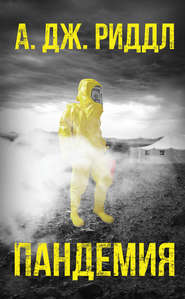По всем вопросам обращайтесь на: info@litportal.ru
(©) 2003-2025.
✖
Departure
Автор
Год написания книги
2019
Настройки чтения
Размер шрифта
Высота строк
Поля
“If the infection is still advancing by the time the sun sets, we’ll have to take a more proactive approach.”
I nod, trying to conceal my growing nervousness.
“At that point, I will remove some of the flesh around the wound and sterilize the area a third time.”
She speaks at length in the same monotone, listing the risks in detail, using scary words like sepsis and gangrene. The long and short is, if I don’t get better today, she’s going to remove some part of my leg. Best case: my summer fashion choices will be limited from here on out. The worst case is … a good bit worse. Sabrina ends on the words “permanent loss of mobility.” Then she waits. I wonder what she wants me to say.
“Well, writers don’t get out much anyway. Haven’t played sports in decades.” So much for reactivating that gym membership when I get back to civilization.
“I’ve described your situation in detail because I believe every patient is entitled to know the details of their medical status and to be involved in the decisions for their care, when possible. And your situation is unique at present. Nick has been to see me regarding your care. He’s been quite insistent that you receive antibiotics immediately. He has enumerated certain … consequences—emotional repercussions for him personally and effects these might have on the well-being of the camp at large—should your health worsen.”
Nick Stone cares about me. Now there’s something. And something worth getting better for. Not that it’s up to me.
Sabrina charges on. It sounds as if she’s reading a prepared statement, a speech she’s rehearsed a few times. “I’ve been saving antibiotics for cases of urgent need. My approach is simple: to prolong the lives of as many people as possible, to maximize the number of survivors alive when help arrives.”
Вы ознакомились с фрагментом книги.
Приобретайте полный текст книги у нашего партнера:
Приобретайте полный текст книги у нашего партнера:














